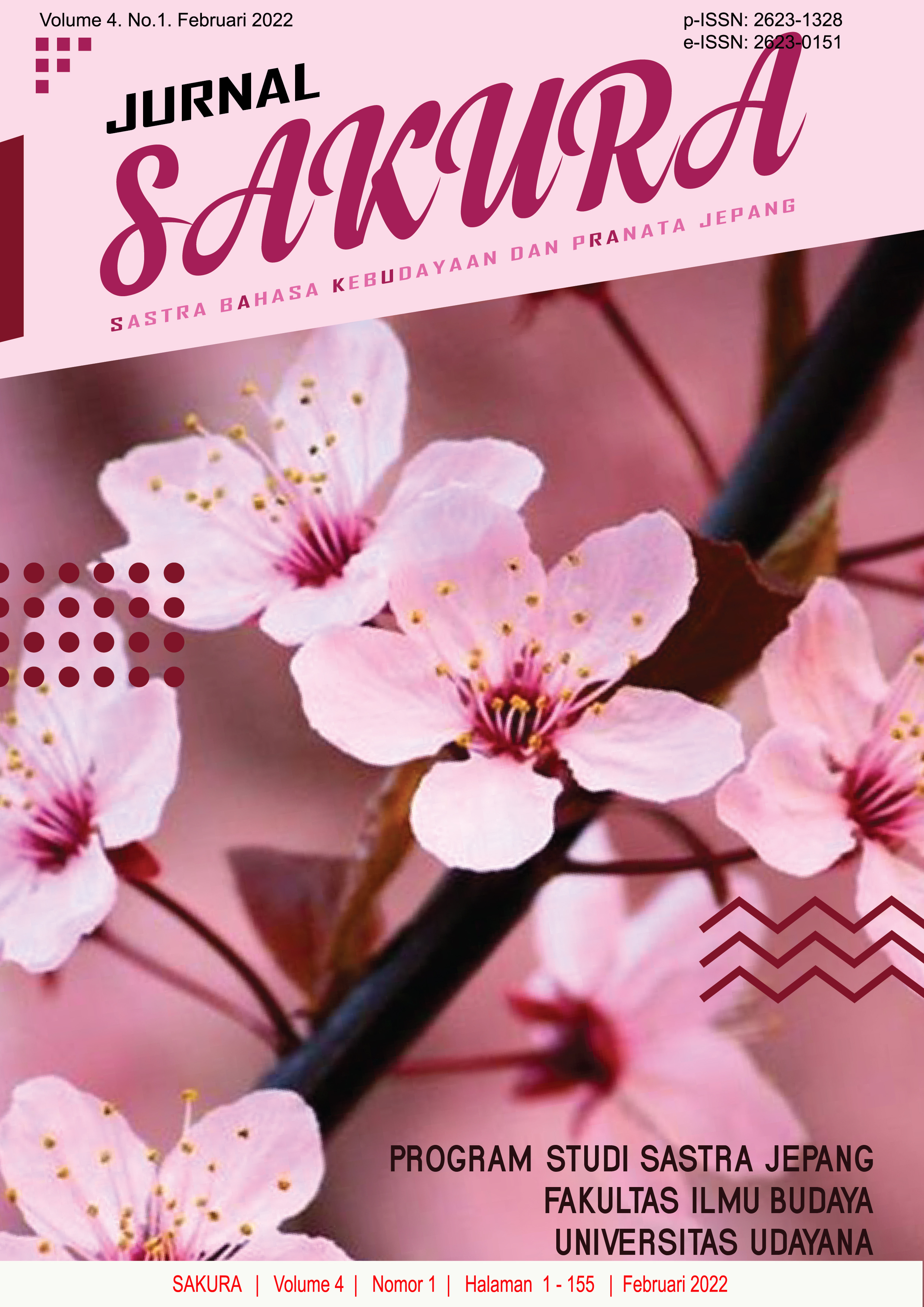Persona EMIYA dalam Anime Fate/Stay Night Unlimited Blade Works Karya Takahiro Miura
Abstract
This research discusses persona EMIYA in the anime fate/stay night unlimited blade works by Takahiro Miura. The purpose of this research is to describe the persona of EMIYA's character such as the source, development, and persona transformation experienced by EMIYA. The research method used is descriptive qualitative. The data collection technique used the note-taking technique. The theory used is Carl Gustav Jung's personality theory regarding persona archetypes. The results of EMIYA's persona analysis brought destruction upon itself. EMIYA is too busy with his own world, following his own impulses, hopes, desires, and fantasies to realize his ambition, the idealism of the hero of justice. EMIYA also over-identifies with persona, adapts and satisfies the social world such as helping people around him with the idealism of his justice hero persona so that he believes that the image he builds is his true personality which ends in his regrets because reality, destiny slaps, the situation he faces changes.
Downloads
References
Muftihah, Nani. 2019. Keterampilan Berbahasa Menyimak Film.Surakarta: Universitas Sebelas Maret
Murray, Stein. 2019. JUNG’S MAP OF THE SOUL:an introduction. Yogyakarta:Shira Media
Murray, Stein. 2020. MAP OF THE SOUL:PERSONA our many faces. Yogyakarta:Shira Media
Nurgiyantorom, Burhan. 2007. TEORI PENGKAJIAN FIKSI. Yogyakarta: Gadjah Mada University Press
Sobur, Alex. 2004. ANALISIS Teks Media. Bandung: PT Remaja Rosdakarya













